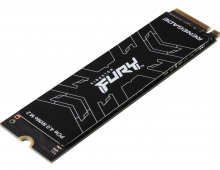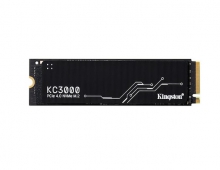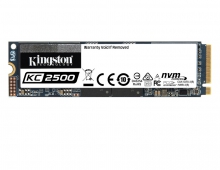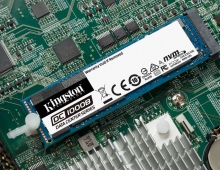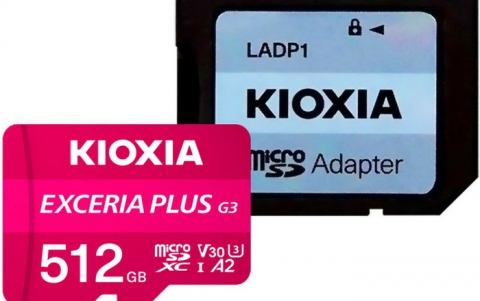Kingston DC400 960GB SSD review
3. HDTachRW, ATTO
Review Pages
Here is our testbed:
- Shuttle SH81R4
Processor: Intel i7 4790Graphics card: Club3D Radeon HD 6790 CoolStream EditionMemory: 2x8GB RAM DDR3-1600 CrucialSSD: 512GB Crucial MX100Monitor: LG L246WH-BH 24" - Windows 7 x64 SP1 with latest updates installed
We start the tests with the HDTachRW software. The software measures the sequential read speed, the random access speed and sequential write speed. The software feeds the tested drive a continuous string of small sequential requests. It doesn't equate to real-world maximum throughput, but it does mean something for analysis.
The drive's reading speed was consistent throughout its capacity and the average read speed was at 467.8MB/s. The software's small sequential requests in the write part we handled well , and the average write speed was 426.6MB/s. A solid performance here:
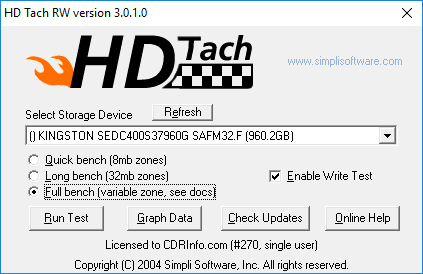
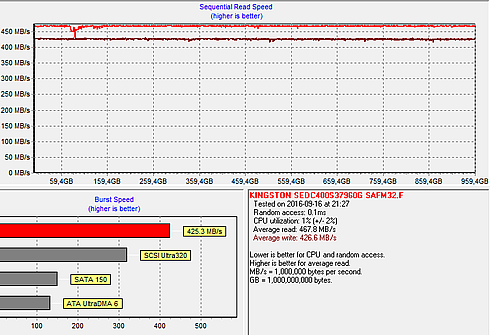
The next software we used was the ATTO Disk Benchmark. The tool measures storage systems performance with various transfer sizes and test lengths for reads and writes. The benchmark performs file transfers ranging from 0.5 KB to 8192 KB. ATTO can be adjusted to do overlapped I/O, in a variety of queue depths. The test was run with the default runs of 0.5KB through 8MB transfer sizes with the total length being 256MB and QD4. ATTO probably gives the most accurate results for compressible read and write data:
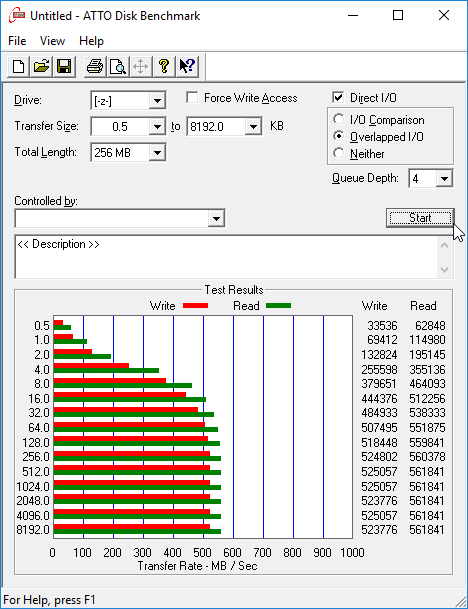
ATTO is showing up to 562MB/s read and 524MB/s write speeds, with large 8MB files. As you see above, the drive's read performance was very high throughout the test. Writing was a bit slower in the first tests with small file sizes, ( until 4KB), but it was improved with larger files.
Let's plot these results to make some comparisons with other SSDs.
The Kingston DC400 960GB SSD was very fast in the 4KB read test (351.1MB/s), ranking higher than the Samsung 850Pro 256GB and the Crucial MX300 750GB:

Reading of larger 2MB files was also very fast at 561.8 MB/s. As you see below, many SSDs are competing in the 550 MB/s - 560 MB/s range, and their actual performance differences are obviously of no importance.

Writing of small 4K files was slower at about 255.6 MB/s. The drive favored the larger 2MB files and returned a write speed of 523.7 MB/s:


Review Pages

